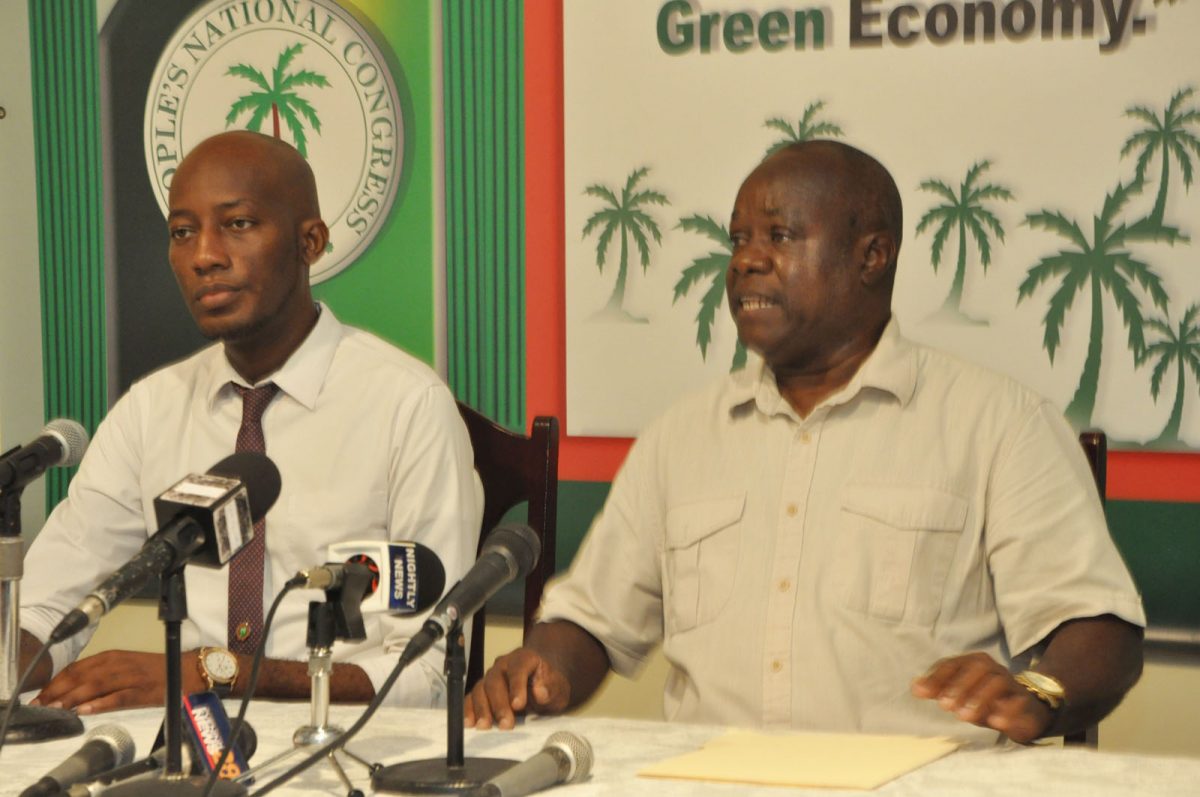President David Granger will dissolve Parliament “at the right time” as doing so now would mean that elections have to be held within three months, two months before the Guyana Elections Commission (GECOM) has said it can deliver credible elections.
This was articulated by People’s National Congress Reform (PNCR) executive member Aubrey Norton at the party’s weekly press conference yesterday. Norton observed that the president can announce a date but he cannot at this stage dissolve Parliament since the law states at Article 61 that, “An election of members of the National Assembly under article 60 (2) shall be held on such day within three months after every dissolution of Parliament as the President shall appoint by Proclamation.”
He added that to dissolve Parliament is to automatically state that you are heading to the polls in three months which would violate GECOM’s timeline.
“Parliament will be dissolved at the right time,” he stressed.
On Wednesday, in an address to the nation following advice from GECOM, Granger identified March 2, 2020 as the earliest date by which general elections can be held but did not issue a proclamation for elections on that date. He also insisted that Parliament must meet to grant an extension of the period for polls, a demand the opposition PPP/C had repeatedly said was out of the question.
He later clarified that General and Regional Elections will be held on March 2, 2020 whether or not the opposition returns to Parliament and grants an extension.
“Elections will be held on the 2nd March. That is the advice I received. I did not want to use perhaps more definitive terms, because I expected that in accordance with the Constitution, we would have to go to Parliament, but if the Opposition doesn’t go to Parliament, well we will abide by what I said last night. Elections will be on the 2nd March. That is as definitive as I can get,” Granger told reporters at the Cyril Potter College of Education on Thursday.
Granger, who has come under mounting pressure from the international community to name a date and has had his government described as unconstitutional, further said that he was “quite guarded” in his remarks to give “the commission an opportunity to publicise its own work schedule.”
“It is not my intention to micromanage the process,” he noted, adding that he met with retired Justice Claudette Singh, the GECOM Chair on Wednesday and learned that there is a work schedule that has to be approved by the commission itself.
In his brief address to the nation on Wednesday, Granger said that Parliament would meet on October 10th for the purpose of requesting an extension of the three-month period for the holding of general elections in the aftermath of a successful motion of no-confidence.
Article 106 (7) of the Constitution says that “Notwithstanding its defeat, the Government shall remain in office and shall hold an election within three months, or such longer period as the National Assembly shall by resolution supported by not less than two-thirds of the votes of all the elected members of the National Assembly determine, and shall resign after the President takes the oath of office following the election.”
Opposition Leader Bharrat Jagdeo has since reiterated that the PPP would not be approving any extension in Parliament of the period for the holding of elections.
It has been pointed out that the government had the three-month period from December 21th, 2018 – the date of the passage of the no-confidence motion – to negotiate an extension of the period and failed to do this. It had a further period from June 18th this year after the Caribbean Court of Justice upheld the December 21th, 2018 motion of no-confidence and again made no attempt to negotiate an extension. Granger’s first formal reference to seeking an extension came on September 25th – a week after the second three-month period ended.









